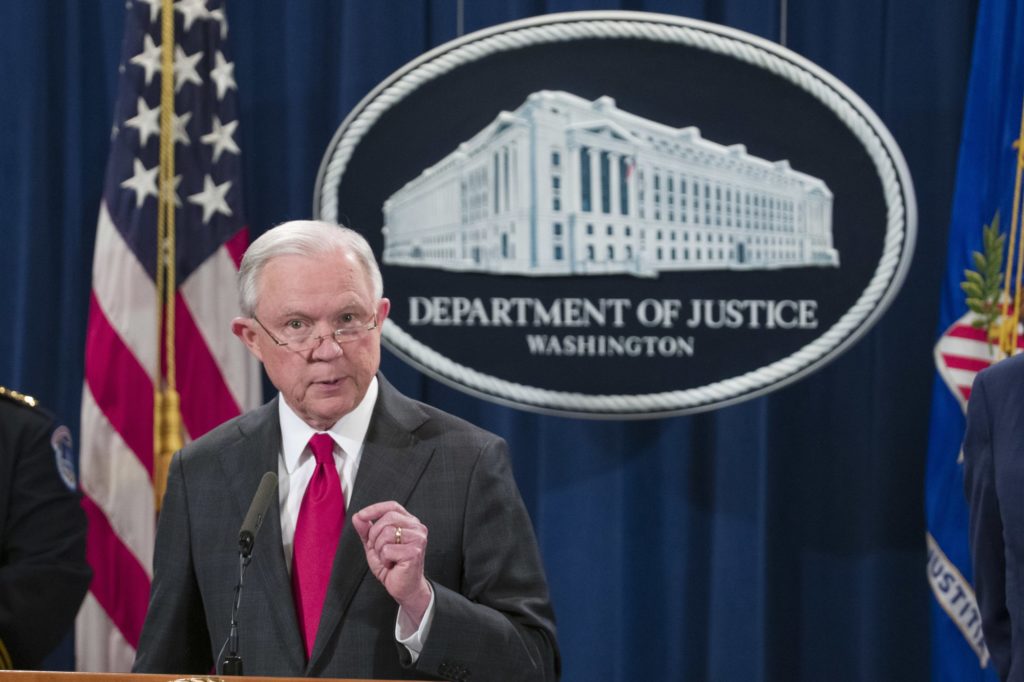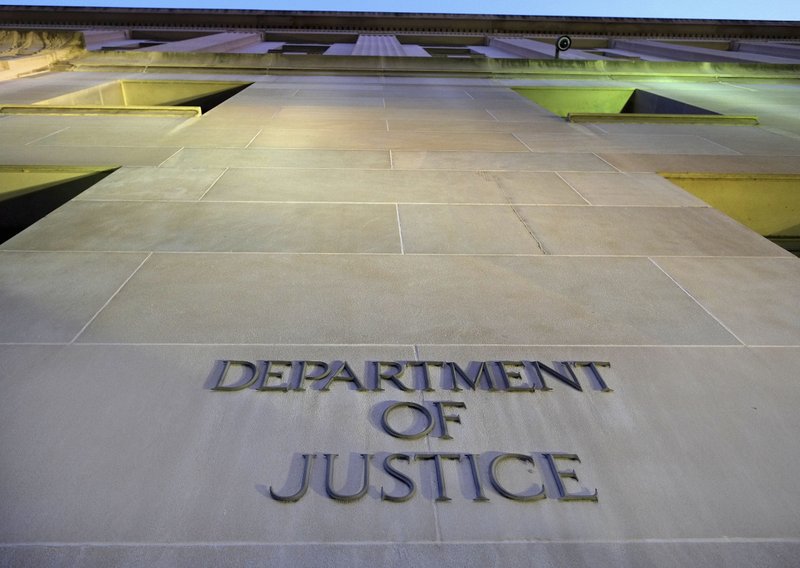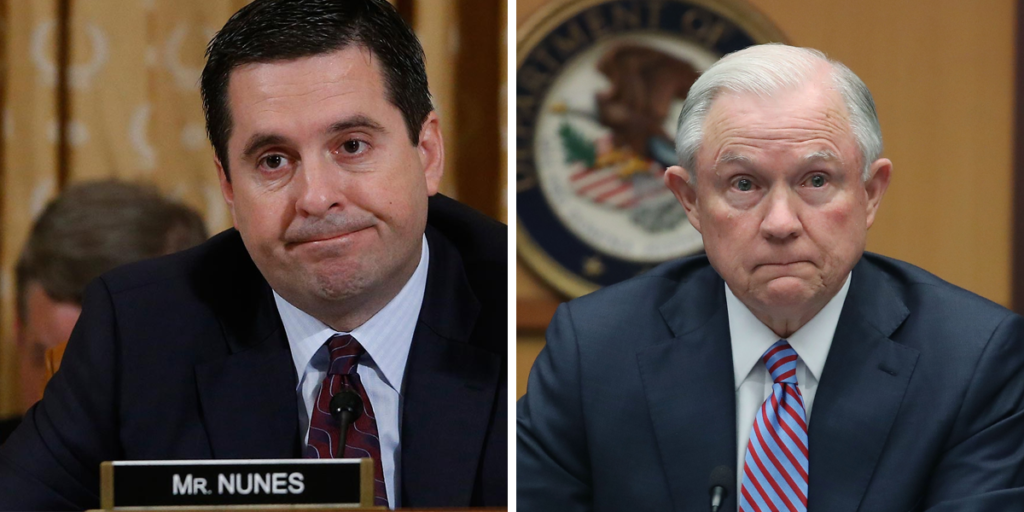Kay Ivey awards grants to prevent youth crime, recidivism in Alabama

Gov. Kay Ivey is hoping to put an end to youth crime and recidivism throughout the state of Alabama. On Friday, she awarded grants totaling $210,698 to support programs aimed to do just that. The grants will support five programs that provide mentoring and counseling to youth and their parents who have been referred through the juvenile justice system with a goal of reducing further involvement in the judicial system. “Wayward youth need mentoring and educational programs to help them get on a path to a positive and productive future,” Ivey said. “I commend the work of these organizations and am pleased to assist them in their efforts to help these young people turn their lives around and get on the road to success.” Ivey awarded the following grants: NEST Corporation Inc. (Mobile County) – $45,000: to expand a program to teach parenting skills to all NEST families. NEST mentors who work with at-risk youth will also reinforce and augment the skills that families learn through the parenting program. Family Counseling Center of Mobile Inc. (Mobile County) – $33,000: to work with truant children and their families, schools, juvenile court, probation officers and the district attorney’s office to reduce the number of absentee and truant children in local schools. Vineyard Family Services of Central Alabama Inc. (Shelby County) – $50,000: for the Detention Prevention Program which offers parents with support and instruction to increase their knowledge, skills and attitudes with the goal of healthy interactions and connections between them and their children. The program also works to reduce recidivism with youth in the Shelby County Juvenile Detention Facility by teaching skills to help participants learn self-managing behavior and healthy decision-making. Auburn University ACES (Walker County) – $49,698: to reduce juvenile delinquency in Walker County by working with at-risk youth and their families. The program will focus on substance abuse prevention and strengthening family bonds. City of Bessemer (Jefferson County) – $33,000: for the Bessemer Police Department’s Marvel City Youth Program. The intervention and mentoring program teaches 75 youth skills designed to promote positive behavior, lessen aggression and develop social and emotional controls. The Alabama Department of Economic and Community Affairs (ADECA) is administering the grants from funds made available to the state by the U.S. Department of Justice. “Gov. Ivey and I believe in helping these young people who have the want and ability to turn from bad choices and become healthy, contributing members of society,” ADECA Director Kenneth Boswell said. “ADECA’s partnership with these organizations will ensure those at-risk youths and their families have every opportunity to find that better future.”
In effort to break drug-crime nexus, Kay Ivey awards grant for drug rehabilitation in state prisons

The State of Alabama is continuing to take steps to help inmates at state prisons overcome drug addictions that may have led or contributed to their prison terms. On Wednesday, Gov. Kay Ivey awarded $504,892 in grant funding to the Residential Substance Abuse Treatment (RSAT) program to help break this drug-crime nexus. The program is six-month course that will be conducted at seven prisons —Bullock Correctional Facility; Bibb Correctional Facility; Donaldson Correctional Facility; Easterling Correctional Facility; Staton Correctional Facility; Tutwiler Correctional Facility; Ventress Correctional Facility — with the intention of breaking the link between drug addiction and criminal activity. “We should strive to ensure that once a person is released from prison they will become a productive member of society,” Ivey said. “This program provides inmates the opportunity to escape their drug habit while in prison and create a new slate when they are released.” According to Bob Horton, Public Information Manager at ADOC, “the grant more than doubles the funding that the treatment program has received in previous years, which will enable the ADOC to expand services.” The Alabama Department of Economic and Community Affairs (ADECA) is administering the program from funds made available to the state from the U.S. Department of Justice (DOJ). The DOJ describes that is goal of the RSAT Program “is to break the cycle of drugs and violence by reducing the demand for, use, and trafficking of illegal drugs. RSAT enhances the capability of states and units of local government to provide residential substance abuse treatment for incarcerated inmates; prepares offenders for their reintegration into the communities from which they came by incorporating reentry planning activities into treatment programs; and assists offenders and their communities through the reentry process through the delivery of community-based treatment and other broad-based aftercare services.” RSAT in Alabama In Alabama, the six-month RSAT Program curriculum is divided into three phases of treatment that are two months each. “In the program’s first phase, inmates who are enrolled take part in full-time treatment activities aimed at dealing with denial of addiction, recognition of drug abuse consequences, understanding of the addiction cycle, and a thorough understanding of the recovery cycle,” Horton explained. “The program’s second phase exposes inmates to recovery issues closely related to substance abuse such as anger management, character defects, criminal thinking, and poor coping skills and habit development. In the third phase, the program focuses on relapse prevention and aftercare planning while working to develop positive life skills.” The ADOC offers aftercare dorms with 768 beds to those who are enrolled in the program to allow a person to spend time practicing and refining their daily addiction recovery. The program will be conducted by counselors who specialize in drug addictions and inmates receive drug screenings while in the program to monitor their success and to measure the program’s effectiveness. “Our main objective is to foster a person’s sobriety and to help them develop a responsible lifestyle once they return back to their community,” said Horton. As of August 2018, 314 prisoners have completed the RSAT program in 2018. Ivey notified Alabama Department of Corrections (ADOC) Commissioner Jeff Dunn the FY2018 grant had been approved.
DOJ seeks to dismiss Alabama’s lawsuit over inclusion of illegal aliens in US Census

The U.S. Department of Justice (DOJ) is pushing back on Alabama’s lawsuit against the federal government over inclusion of illegal aliens in US Census. The DOJ challenged the lawsuit in a motion filed Monday, arguing the case should be dismissed because the plaintiffs lack of jurisdiction. “There simply is no case or controversy that would justify having this Court wade into the constitutional and other claims raised by Plaintiffs’ lawsuit. Accordingly… this Court should dismiss Plaintiffs’ Complaint for lack of jurisdiction,” read the motion from the DOJ. In May, Alabama 5th District U.S. Rep. Mo Brooks and Alabama Attorney General Steve Marshall filed a lawsuit against the federal government over what they said was the Census Bureau‘s “unlawful” decision to include of illegal immigrants in census data “used to determine the apportionment of the U.S. House of Representatives and the Electoral College.” Marshall says the move will cause Alabama to lose a seat in the U.S. House of Representative as well as a vote in the Electoral College. “If the U.S. Census Bureau follows through with its plan to include illegal aliens in the 2020 census for purposes of apportionment, Alabama will lose both a seat in the U.S. House of Representative and a vote in the Electoral College,” explained Marshall. “Alabama’s loss will be another state’s gain, as states with a growing illegal alien population will be the beneficiary of this reapportionment. I have joined with Congressman Mo Brooks in filing suit against the federal government to stop the inclusion of illegal aliens in the census’s apportionment population. The Constitution does not permit the dilution of our legal residents’ right to equal representation in this manner.” Brooks echoed Marshall’s thoughts. “Each decade, 435 Congressional seats are apportioned among the states based on population. Congressional seats should be apportioned based on the population of American citizens, not illegal aliens. After all, this is America, not the United Nations,” said Brooks. But the DOJ contends the plaintiffs failed to demonstrate this could happen in their lawsuit. “Plaintiffs, however, have failed to demonstrate—even at the pleading stage—that the inclusion of illegal aliens would actually result in this injury. The very purpose of the census—an event that will not even take place until 2020—is to count the number of people residing in each state,” their motion read. “…Because the census has not yet taken place, thus making their claimed injury speculative, conjectural, and hypothetical. As a fallback, Alabama alleges that it is likely to lose funding if illegal aliens are included in the census, but that claimed injury is just as speculative as its claimed loss of representation because it relies upon the same type of prediction as to what the census will yield.” In their lawsuit, Marshall and Brooks argue the Census Bureau’s “Residence Rule” — which allows foreign nationals living in the United States to be counted in the census and allocated to the state of their “usual residence” regardless of whether they are legally present in the U.S. — violates the Fourteenth Amendment of the U.S. Constitution and the constitutional principal of equal representation: But the DOJ said it believes Alabama’s suit falls outside the zone of interests protected by the Constitution’s Census Clause. “And to the extent funding decisions are based on total population, Alabama would nonetheless receive its fair share based on its total population, including its population of illegal alien residents (many of whom use government services, such as attending schools). For those reasons alone, Alabama’s claim that it will lose federal funds if illegal aliens are included in the census is too speculative to support standing,” the motion explained. Brooks declined to comment on the DOJ’s motion when asked by Alabama Today. The State of Alabama’s lawsuit against the U.S. Department of Commerce and the Census Bureau was filed May 21, 2018, in the U.S. District Court for the Northern District of Alabama. Click HERE to view the lawsuit. Read the DOJ’s filing below:
Some Jeff Sessions allies hope White House allows graceful exit

Sensing that Jeff Sessions’ days at the Justice Department may be numbered, some of his supporters want the White House to allow for a graceful exit for an attorney general they believe has dutifully carried out the administration’s agenda even while enduring the president’s fury. It seems unlikely that efforts to soften a possible dismissal after the Nov. 6 midterm election would find sympathy in the White House, where President Donald Trump’s rage remains unabated over the attorney general’s recusal from the Russia investigation. A hand-picked successor could theoretically oversee the rest of the probe in place of Deputy Attorney General Rod Rosenstein. But some supporters say they hope that if and when Sessions is replaced, his record as senator and attorney general will be recognized and not overwhelmed by Trump’s attacks, or that the administration will at least respect the Justice Department by guaranteeing a smooth transition. A scenario advocated by at least one Sessions ally, former Cincinnati Mayor Ken Blackwell, would allow him to remain on the job until January and be permitted to resign on his own then rather than be fired immediately after the midterms. Blackwell said allies have made their case to administration officials that Sessions has successfully pushed the president’s core priorities, including on illegal immigration, and deserves some sort of recognition from the White House that “he has more than a passing grade.” “It is not unknown, from anyone from John Kelly to Jared Kushner, that there is a base of support,” said Blackwell, referring to Trump’s chief of staff and son-in-law. “A portion of that base is ready to continue advocacy for his service.” Newt Gingrich, a former Republican House speaker who is close to the White House and calls himself a longtime “admirer” of Sessions, said he would be open to serving as an intermediary if asked between the White House and Sessions supporters. “He deserves a graceful exit. His career deserves a strong conclusion,” said Gingrich, who called Sessions “a strong conservative who has done strong work at the Department of Justice.” Sessions, who has publicly acknowledged the president’s displeasure, has plowed forward with the conventional duties of the job, including a regular calendar of events and announcements. On Friday, he spoke first at the Justice Department news conference announcing the arrest of a mail-bomb suspect in Florida. The president, though mindful that Sessions remains popular among much of his base, would seem unlikely to sign off on a plan to extend Sessions’ time in office, according to a White House official and an outside adviser familiar with Trump’s thinking but not authorized to publicly discuss private conversations. Trump has repeatedly had to be talked out of firing Sessions before November and has signaled to allies that he wants to make sweeping changes at the Justice Department once the midterms have concluded. He told The Associated Press this month that he was “not thrilled” with Sessions but made no commitment to dismiss him. If Trump were to wait, it would not be out of deference to Sessions, but rather because the White House would be managing the fallout from the midterms and preparing for a pair of presidential overseas trips in November, according to the official. Sessions’ decision to recuse remains his original sin in Trump’s eyes. Trump has fumed that Sessions has not done more to protect his personal interests and has vented about what he sees as Sessions’ failure to get a handle on immigration and his lack of emphasis on combating transnational criminal organizations. Cameron Smith, a former Sessions Senate aide, said, “The idea that this gets better — they stand next to each other and sing common praises — I just don’t see anybody looking at that seriously.” After being berated by Trump over the recusal decision last year, Sessions offered his resignation, but it was rejected. He has been widely viewed as determined to stay in the job because he believes in Trump’s agenda, which largely mirrors his own interests, and reluctant to leave a job for which he gave up a Senate seat. For more than a year, Trump has repeatedly polled advisers as to whether he should fire Sessions. Some of his closest aides, including attorney Rudy Giuliani, have counseled him not to do so, at least not yet. The case that Sessions’ protectors outlined to Trump largely consists of three components: Firing Sessions, a witness in special counsel Robert Mueller’s investigation of obstruction of justice, would add legal peril to his standing in the Russia probe. Doing so would anger the president’s political base, which Trump cares deeply about, especially before the midterms. A number of Republican senators would rebel against the treatment of a longtime colleague and potentially not hold confirmation hearings for a replacement if the GOP holds onto the Senate. Blackwell, the Sessions friend, said conservatives are divided between those who support firing him immediately and those who regard him as loyal to their cause, protective of their ideals and propelling Trump’s agenda. Gingrich, for instance, calls the recusal “inexcusable” even as he professes admiration for Sessions. The ground appears to have softened recently after some influential Republicans, including Sen. Lindsey Graham, suggested Trump would have the right, after the elections, to select a replacement he trusted. Smith said one way Trump could enable a respectful exit would be for the White House to craft a smooth succession plan and allow Sessions to be part of the process. Ed Meese, a Reagan administration attorney general and Sessions friend, said he wasn’t thinking about Sessions’ departure because “I don’t want to see him fired at all.” “I think he’s taken it with grace,” Meese said of Sessions’ response to Trump’s anger. “What he is recused from is less than 1 percent of the department and he has done an outstanding job in everything he’s done in the department.” Republished with permission from the Associated Press.
Jeff Session tells law enforcement: ‘We have your back’

U.S. Attorney General Jeff Sessions on Monday praised President Donald Trump as a “law and order” president and told a gathering of law enforcement officials that they have support from the White House and the Justice Department. In a visit to his home state of Alabama to speak at the department’s National Public Safety Partnership Symposium, Sessions praised the program’s partnership between the federal government and communities to help fight violent crime. “Each one of you can be certain about this: we have your back and you have our thanks,” Sessions said. Sessions touted the efforts of the Justice Department to fight violent crime and “back the blue.” He said Trump took office with a mission to restore public safety, and said it is a switch from those that “saw police as the problem in America.” “Make no mistake about it President Trump is a law and order president,” Sessions said. Sessions said new FBI crime statistics being released Monday will show that violent crime and murder declined in 2017. The former Alabama senator spent the weekend in his home state. He did not mention Trump’s recent criticism of him for recusing himself from the Russia investigation or the controversy surrounding Deputy Attorney General Rod Rosenstein and reports that Rosenstein might have suggested secretly recording Trump. Sessions joked that he appreciated the warm welcome after receiving loud applause as he walked on stage at the law enforcement gathering. “It’ll make my day. … Who knows? I may need this today. Going back to Washington you never know what is going to happen next in the capital city that’s for sure.” Sessions announced new grants for ballistic technology and improved investigative practices through Crime Gun Intelligence Centers for Indianapolis, Memphis, Baton Rouge and Tulsa. He also announced grants for technology improvements for Houston, Memphis and Toledo. Republished with permission from the Associated Press.
It’s time for Jeff Sessions to move on

In the last several weeks the public jabs back and forth between Attorney General Jeff Sessions and President Donald Trump heated up to what can only be described as an unmitigated disaster. It was like watching a scene from Mean Girls as first Trump tweeted about Sessions and Sessions responded with an official statement and now just yesterday it was reported Trump was criticizing Sessions accent and educational background. Enough already! Stop the madness. While I know this opinion will be unfavorable, especially here in Sweet Home Alabama I feel like I need to join the chorus of folks saying – it is time for Sessions to step down from his role. It does no one any good for him to be there under these circumstances and knowing Trump’s temperament it’s not a matter of if but when Sessions finds himself on the receiving end of a tweet informing him that his tenure in the administration is over. Session’s presence in the administration has become a distraction from the important work the Department of Justice is and needs to be doing. The president’s cabinet and our federal government needs to function in a fluid fashion and our leaders need to have, or at least be able to show respect for one another, if not for the offices that each of them hold. I wrote about Sessions recusing himself from the Russia investigation very early on when it occurred, agreeing with Trump that Sessions shouldn’t have done so. That said I’m a big fan of Session’s and the service he’s given to our state and our nation. While I disagree with him on some issues (like civil forfeiture) he’s proven throughout his career that he loves our nation and justice. So while it’s shame, it is abundantly clear that it’s time for the Department of Justice to have a clean slate. It’s time for grown men to act like grown men. It’s time for the Sessions to realize he’s no longer just the guest who’s worn out his welcome he’s making the party uncomfortable for everyone. If he were to sooner rather than later before things get any uglier, he could absolutely chase away the 50 of so people with their names being thrown around to run and beat Sen. Doug Jones in 2020 to take the U.S. Senate seat he vacated to become AG (should he have any interest in that which is doubtful to say the least). He could clearly also have a very lucrative private sector or job in higher education. His possibilities are endless but they all start with the same thing, he has to be willing to see that the price of this ongoing public feud is too high and it’s time to go. He must do all he can to protect and maintain not just his own reputation but that of the agency he’s been entrusted to run. Now, I don’t kid myself that the confirmation of a new attorney general would be an easy feat but we need someone in there that can be more effective and less divisive. We need to start sooner rather than later getting ready for that fight.
Conservative religious leader says Jeff Sessions no longer has evangelical support

One of the top conservative evangelical leaders in the nation is urging President Donald Trump to fire Attorney General Jeff Sessions. On Monday, POLITICO reported that Jerry Falwell Jr.,a lawyer and President of Liberty University in Lynchburg, Va., urged Trump to fire Sessions. “He really is not on the president’s team, never was,” Falwell toldPolitico. “He’s wanted to be attorney general for many, many years. I have a feeling he took a gamble and supported the president because he knew he would reward loyalty.” Sessions has long been a supporter of conservative evangelicals, going so far as to launch a religious liberty task force within the U.S. Department of Justice (DOJ) in July, citing a “dangerous movement” to erode religious freedom in America. “A dangerous movement, undetected by many, is now challenging and eroding our great tradition of religious freedom. There can be no doubt. This is no little matter. It must be confronted and defeated,” Sessions told attendees of the Department of Justice’s Religious Liberty Summit. But Sessions “has angered Trump loyalists more recently because the Justice Department has not declassified all materials sought by Republicans in regard to the Russia investigation,” Politico reported. “The president believes Sessions, who recused himself from the Russia probe because of his involvement in the 2016 campaign, has failed to rein in a probe that Trump claims is driven by politics.” Last week, Trump fired several barbs at Sessions, telling Fox news channel’s “Fox & Friends” that Sessions “took the job and then he said, ‘I’m going to recuse myself.” “[He] never took control of the Justice Department and it’s a sort of an incredible thing,” Trump continued. Sessions then fired back at the president, saying that the DOJ would not be “improperly influenced by political considerations.” “A lot of Republicans pretend to be friends to conservatives and the faith community for decades when they really were not,” Falwell continued to tell Politico. “I don’t know if he’s in that category. If he was really a fair person, he’d be going after both sides.”
Jeff Sessions, Justice Department defend college students First Amendment rights

Jeff Sessions is making headlines this week and setting off the liberal left with common sense, constitutional actions. Among his actions giving the “open minded,” “tolerant,” progressives heartburn is the fact that the Justice Department has decided to take on schools infringing on students First Amendment rights under the guise of attempting to police “biased speech.” Weighing in on a University of Michigan case, the Justice Department said: The Department of Justice today filed a Statement of Interest in Speech First, Inc., v. Schlissel in the Eastern District of Michigan. The plaintiff, Speech First, a nationwide organization dedicated to defending civil liberties, alleges that the University of Michigan has adopted policies prohibiting and punishing speech protected by the First and Fourteenth Amendments. Speech First alleges that the University of Michigan’s policies on “harassment,” “bullying,” and “bias” are so vague and overbroad as to prompt students to limit their speech out of fear that they might be subject to disciplinary sanction, including “individual education” or “restorative justice” at the hands of the University’s Bias Response Team. The United States’ Statement of Interest argues that the University of Michigan’s Statement of Student Rights and Responsibilities, which prohibits “harassment,” “bullying,” and “bias,” is unconstitutional because it offers no clear, objective definitions of the violations. Instead, the Statement refers students to a wide array of “examples of various interpretations that exist for the terms,” many of which depend on a listener’s subjective reaction to speech. The United States also argues that the University’s Bias Response Policy chills protected speech through its Bias Response Team. The Bias Response Team, which consists of University administrators and law enforcement officers, has the authority to subject students to discipline and sanction. It encourages students to report any suspected instances of bias, advising them: “[t]he most important indication of bias is your own feelings.” According to the plaintiff, the Bias Response Team has responded to more than 150 alleged incidents of bias in the last year. In filing the Statement of Interest, Acting Associate Attorney General Jesse Panuccio provided the following statement: “Freedom of speech and expression on the American campus are under attack. This Justice Department, under the leadership of Attorney General Jeff Sessions, is committed to promoting and defending Americans’ first freedom at public universities.” This is the fourth Statement of Interest filed by the Department of Justice in a First Amendment case under Attorney General Jeff Sessions. The first was filed on Sept. 26, 2017 in Uzuegbunam v. Preczewski, the second was filed on Oct. 24, 2017 in Shaw v. Burke, and the third was filed on January 25 in Young America’s Foundation and Berkeley College Republicans v. Janet Napolitano. In the case at hand in Michigan was summed up in an op-ed by Nicole Neily the president of Speech First, a membership association that defends students’ free speech rights on campus, published in the Hill: Michigan complements its code with something called a bias response team, a system that encourages fellow students who overhear comments (even ones taken out of context, between friends) to report offensive language to administrators, which is then tracked and publicly shared on the school’s website as a visible reminder of the student body’s various sins. Incidents are investigated, potentially subjecting students whose speech offends another student to punishment by process. Depending on the outcome, he or she may be sent for “restorative justice” — a benign euphemism for a modern-day reeducation camp — to atone for the thought crime in question. But even if he or she is exonerated, the stigma of going through such a process, as well as the distraction from his/her studies and the burden imposed on his/her time, serves to significantly deter students from expressing ideas outside the mainstream. Regardless of your positions on issues, we should all fear this type of selective thought and word-policing and the encouragement that in the real world it would be acceptable. Schools can’t force tolerance and decency on people. Nor should they be able to implement subjective rules to force alternative views and ban, or prohibit, the expression of dissenting views in the name of “bias.” Imagine the ways in which such subjective criteria could be used as a weapon to silence anyone at any time based on personal preferences of the listener. It is frightening that places of higher education where young adults should be encouraged to express themselves freely and to learn to approach conflict in a positive way and figure out outcomes themselves, administrators would implement such restrictive policies. If a student overhears something that they take offense to they have options A) Walk away or B) Respectfully confront the person talking. That’s what happens everyday in public places throughout our nation. No safe spaces needed. No infringing on one’s rights. There are still issues in our communities that are very controversial. I struggle with how I will talk with and what I will teach my children about the transgender community. I don’t come from a place of hate, or ignorance, or bigotry, but I do favor science and I believe strongly that you can’t simply declare your gender different than what your genetics say. My views are shaped by scientific research and my religion and were I to go back to school and find myself in an environment of discussion I should hope my thoughts would be as welcome as those opposed to mine. I would expect, if not demand, that my constitutional rights give me the ability to respectfully discuss my views without fear of disciplinary action. I wrote about an extreme version this campus censoring in a post about University of Alabama student Harley Barber, being forced out due to a video which included racist views. While her comments were certainly out of line and reprehensible, making her a pariah wasn’t the best course of action. Barber, like many others in college do at some point in early adulthood, spoke and acted from a place of ignorance. She just happened to do so in a racist way
DOJ lifts secrecy on foreign lobbying opinions

The Justice Department is opening up about the advice it has given to lobbyists who work for foreign governments and political interests. For the first time, the public will be able to read advisory opinions the department has issued to lobbyists, public relations professionals and others about whether they need to register under the Foreign Agents Registration Act, or FARA. The department had kept the opinions secret for decades, a point of contention for transparency advocates and lawyers who specialize in advising clients on complying with the law. The opinions provide an unprecedented view into the thinking of a specialized Justice Department unit whose influence has grown in recent years, propelled by more aggressive enforcement and a special counsel investigation focused on foreign influence operations inside the U.S. The Associated Press obtained copies of dozens of opinions, which were to be posted online later Friday. Those who have requested the department’s guidance include a television host who worked for a company with foreign connections, people negotiating with other governments over the release of prisoners and a firm that planned a U.S. fundraiser for a politician in another country. The department removed the names and other identifying details from the opinions to allow for their public release. In disclosing the opinions, Justice Department officials say they want the public to better understand how they interpret a decades-old law meant to allow Americans to know when foreign entities are trying to influence public opinion or policymakers. The law, enacted in 1938 to unmask Nazi propaganda in the United States, requires people to disclose to the Justice Department when they advocate, lobby or perform public relations work in the U.S. on behalf of a foreign government or political entity. “Today is the law’s 80th anniversary, and it remains a vital tool to combat this threat,” Assistant Attorney General John Demers, the department’s top national security official, said in a statement. “To enhance compliance, we are making these advisory opinions available publicly and online for the first time. By posting these advisory opinions, the Department of Justice is making clearer how we interpret some of FARA’s key provisions.” The heightened enforcement and some high-profile registrations have coincided with special counsel Robert Mueller’s Russia investigation. In the last two years alone, President Donald Trump’s former campaign chairman, Paul Manafort, and former White House national security adviser Michael Flynn have had to register under the law, as has Tony Podesta, a top Democratic lobbyist and brother of Hillary Clinton’s campaign chairman. Manafort is set to go to trial later this year on charges that he concealed his lobbying and influence work on behalf of Ukrainian interests, including a pro-Russian political party. The Justice Department also required the U.S.-based operations of RT, an international television network funded by the Russian government, to register as a foreign agent, a move that angered Russian leaders late last year. U.S. intelligence agencies have alleged RT functioned as a propaganda outlet for the Kremlin as part of an effort to interfere in the 2016 U.S. presidential election. The opinions obtained by the AP show the wide array of requests the Justice Department receives from people and companies trying to determine if they’re obligated to register. In August 2015, for instance, the department determined that a U.S. firm would have to register as a foreign agent if it wanted to host a fundraiser for a candidate running for president in another country. Last February, though, lawyers told a consultant for a foreign government that registration was unnecessary because the work was being done almost entirely outside the United States. That same month, a U.S. organization coordinating with foreign governments in the release of prisoners abroad was told it wouldn’t need to register because the work was humanitarian in nature and not funded by foreign money. Republished with the permission of the Associated Press.
Donald Trump to DOJ: Investigate whether FBI infiltrated campaign

President Donald Trump said he will “demand” that the Justice Department investigate whether the FBI infiltrated his presidential campaign, an extraordinary order that came hours before his legal team said the special counsel indicated the investigation into the president could be concluded by September. Trump tweeted Sunday: “I hereby demand, and will do so officially tomorrow, that the Department of Justice look into whether or not the FBI/DOJ infiltrated or surveilled the Trump Campaign for Political Purposes – and if any such demands or requests were made by people within the Obama Administration!” Trump’s demand puts further pressure on the Justice Department, which later Sunday asked its inspector general to expand an existing investigation into the Russia probe by examining whether there was any improper politically motivated surveillance. It comes as the White House tries to combat the threat posed by special counsel Robert Mueller’s investigation into potential ties between Russia and the Trump campaign. The president’s lawyer, Rudy Giuliani, said Mueller recently shared a timetable that suggested his probe could end by Sept. 1 if Trump were to sit for an interview in July, which is the legal team’s new working plan. “We said to them, ‘If we’re going to be interviewed in July, how much time until the report gets issued?’” Giuliani told The Associated Press on Sunday, referring to the report Mueller is expected to issue to Congress at the conclusion of his investigation. “They said September, which is good for everyone, because no one wants this to drag into the midterms.” Giuliani said he did not want a repeat of what happened in 2016, when FBI Director James Comey announced in the campaign’s final days that he was reopening the investigation into Hillary Clinton’s use of a private email server, a decision Democrats believe cost Clinton the race. Giuliani, the former mayor of New York, also said Mueller’s team indicated that the entire probe could end by September, not just its investigation into potential obstruction of justice. “This would be the culmination of the investigation into the president,” Giuliani said. The special counsel’s office did not respond to a request for comment. It is not certain that Trump will sit for an interview with Mueller, though the president has publicly said he would. Giuliani said a decision would not be made until after Trump’s summit with North Korean leader Kim Jong Un in Singapore, which is slated for June 12. Giuliani said Sunday the two sides “were getting closer” to agreeing on the parameters on a potential interview but would not put the odds of it happening at better than 50/50. Giuliani’s apparent attempt to publicly pressure Mueller on the timeline amid interview negotiations came just hours after Trump’s demand for a new inquiry, which moved beyond his usual blustery accusations of institutional wrongdoing and into the realm of applying presidential pressure on the Justice Department, a move few of his predecessors have made. Trump made the order amid days of public venting about the special counsel investigation, which he has deemed a “witch hunt” that he says has yielded no evidence of collusion between his campaign and Russia. In response, the Justice Department moved Sunday to defuse a growing confrontation with the White House by asking its watchdog to investigate whether there was inappropriate surveillance. It was not immediately clear if that move would satisfy Trump, or if any further demands could lead to a confrontation with FBI Director Christopher Wray or Deputy Attorney General Rod Rosenstein, who is overseeing the Mueller investigation. Rosenstein released a statement Sunday saying, “If anyone did infiltrate or surveil participants in a presidential campaign for inappropriate purposes, we need to know about it and take appropriate action.” The Justice Department probe had begun in March at the request of Attorney General Jeff Sessions and congressional Republicans. Sessions and the lawmakers had urged Inspector General Michael Horowitz to review whether FBI and Justice Department officials abused their surveillance powers by using information compiled by Christopher Steele, a former British spy, and paid for by Democrats to justify monitoring Carter Page, a former campaign adviser to Trump. Horowitz said his office will look at those claims as well as communications between Steele and DOJ and FBI officials. Trump did not elaborate on the promised “demand,” which he included in one of a series of tweets he sent throughout the day Sunday. On Saturday, Trump tweeted, “If the FBI or DOJ was infiltrating a campaign for the benefit of another campaign, that is a really big deal.” He said only the release or review of documents the House Intelligence Committee is seeking from the Justice Department “can give conclusive answers.” Rep. Adam Schiff of California, the senior Democrat on the House Intelligence Committee, called Trump’s claim of an embedded spy “nonsense.” “His ‘demand’ DOJ investigate something they know to be untrue is an abuse of power, and an effort to distract from his growing legal problems,” Schiff tweeted. “Never mind that DOJ has warned that lives and alliances are at risk. He doesn’t care.” Trump’s extraordinary demand of the Justice Department alarmed many observers, who felt it not only violated presidential protocol but also could have a chilling effect on federal law enforcement or its use of informants. Giuliani defended the president’s actions. “As the president’s lawyer, I can’t be concerned on what effect it may have,” he said. “To me, there’s not much of a difference between an informant’s ongoing collection of information in a surreptitious way or a spy. “If this guy was an FBI implant into the campaign,” Giuliani said, “that’s as offensive as Watergate.” The New York Times was the first to report that the FBI had an informant who met several times with Trump campaign officials who had suspicious contacts linked to Russia. Giuliani said the information discovered by the source should eventually be made public and released to Congress, even if the source’s identity is kept confidential. The GOP-led House Intelligence Committee closed its Russian
Sanctuary cities could get boost from sports betting ruling

In President Donald Trump’s former life as a casino owner, he might have cheered Monday’s ruling from the Supreme Court that struck down a federal law that barred every state but Nevada from allowing betting on most sporting events. But the Trump administration opposed the outcome reached by the high court at least in part because it could signal trouble in its legal fight against so-called sanctuary states and cities. Seven of the nine justices — five conservatives and two liberals — backed a robust reading of the Constitution’s 10th Amendment and a limit on the federal government’s power to force the states go along with Washington’s wishes. The federal anti-gambling law is unconstitutional because “it unequivocally dictates what a state legislature may and may not do,” Justice Samuel Alito wrote in his majority opinion. “It’s as if federal officers were installed in state legislative chambers and were armed with the authority to stop legislators from voting on any offending proposals.” There is a direct link between the court’s decision in the sports betting case and the administration’s effort to punish local governments that resist Trump’s immigration enforcement policies, several legal commentators said. “The court ruled definitively that the federal government can’t force states to enforce federal law. In the immigration context, this means it can’t require state or local officials to cooperate with federal immigration authorities,” said Ilya Shapiro, a senior fellow in constitutional studies at the libertarian Cato Institute. Omar Jadwat, director of the ACLU’s immigrants’ rights project, said the ruling reinforced decisions from the 1990s, including one that struck down part of a federal gun control law that required local police to determine if buyers were fit to own handguns. “It reiterates that the real thrust of the 10th Amendment and the principles of law in this area is that the fed government can’t tell the states or cities how to legislate,” Jadwat said. The amendment says that powers not specifically given to the federal government belong to the states. The gun law decision split the court’s conservatives and liberals in 1997, in keeping with conservatives’ complaints about the federal government’s overreach and the importance of states’ rights. But on Monday, Justices Stephen Breyer and Elena Kagan joined their more conservative colleagues. The Justice Department declined to comment on the decision, but it had called on the court to uphold the federal law at issue — the department’s usual practice when federal laws are challenged — by arguing that there was no constitutional violation. In the most recent ruling about sanctuary cities, the federal appeals court in Chicago held last month that the federal government cannot withhold public safety grants from cities that won’t go along with Trump’s immigration enforcement policies. In lawsuits challenging the administration, cities argue that turning local police authorities into immigration officers erodes trust with minority communities and discourages residents from reporting crime. The administration says sanctuary jurisdictions allow dangerous criminals back on the street. The administration’s efforts to crack down on places that don’t comply with immigration authorities have taken several forms. Trump issued an executive order aimed at withholding federal money from recalcitrant jurisdictions. The administration also has sued California over three laws aimed at protecting immigrants in the country illegally. Republished with permission from the Associated Press.
Devin Nunes threatens Jeff Sessions with contempt charges over Russia

House Intelligence Committee Chairman Devin Nunes is threatening to hold Attorney General Jeff Sessions in contempt of Congress for failing to hand over classified materials related to the Russia investigation. Nunes phoned into Fox & Friends Sunday to explain that two weeks ago, he sent Sessions a classified letter demanding “very important” documents regarding counterintelligence investigations. He claims he was ignored. Then, last week, he sent a subpoena for the information. “On Thursday, we discovered that they are not going to comply with our subpoena on very important information that we need,” Nunes explained, adding, “The only thing left to do is we have to move quickly to hold the attorney general of the United States in contempt and that is what I will press for this week.” The Department of Justice (DOJ) pushed back on Sunday, and released a letter they sent to Nunes on Thursday, May 3, which addressed the classified information Nunes had requested.According to the letter, Nunes had asked for information on a specific individual, that the DOJ considers to be a very valuable person for a counterintelligence operation. “The Department has determined that, consistent with applicable law and longstanding Executive Branch policy, it is not in a position to provide information responsive to your request regarding a specific individual,” Assistant Attorney General Stephen Boyd wrote in a signed letter. “Disclosure of responsive information to such requests can risk severe consequences, including potential loss of human lives, damage to relationships with valued international partners, compromise of ongoing criminal investigations, and interference with intelligence activities.” Boyd continued, “The Department and its intelligence community partners would welcome the opportunity to discuss whether there are other ways to accommodate the House Permanent Select Committee on Intelligence’s oversight inquiry.”


